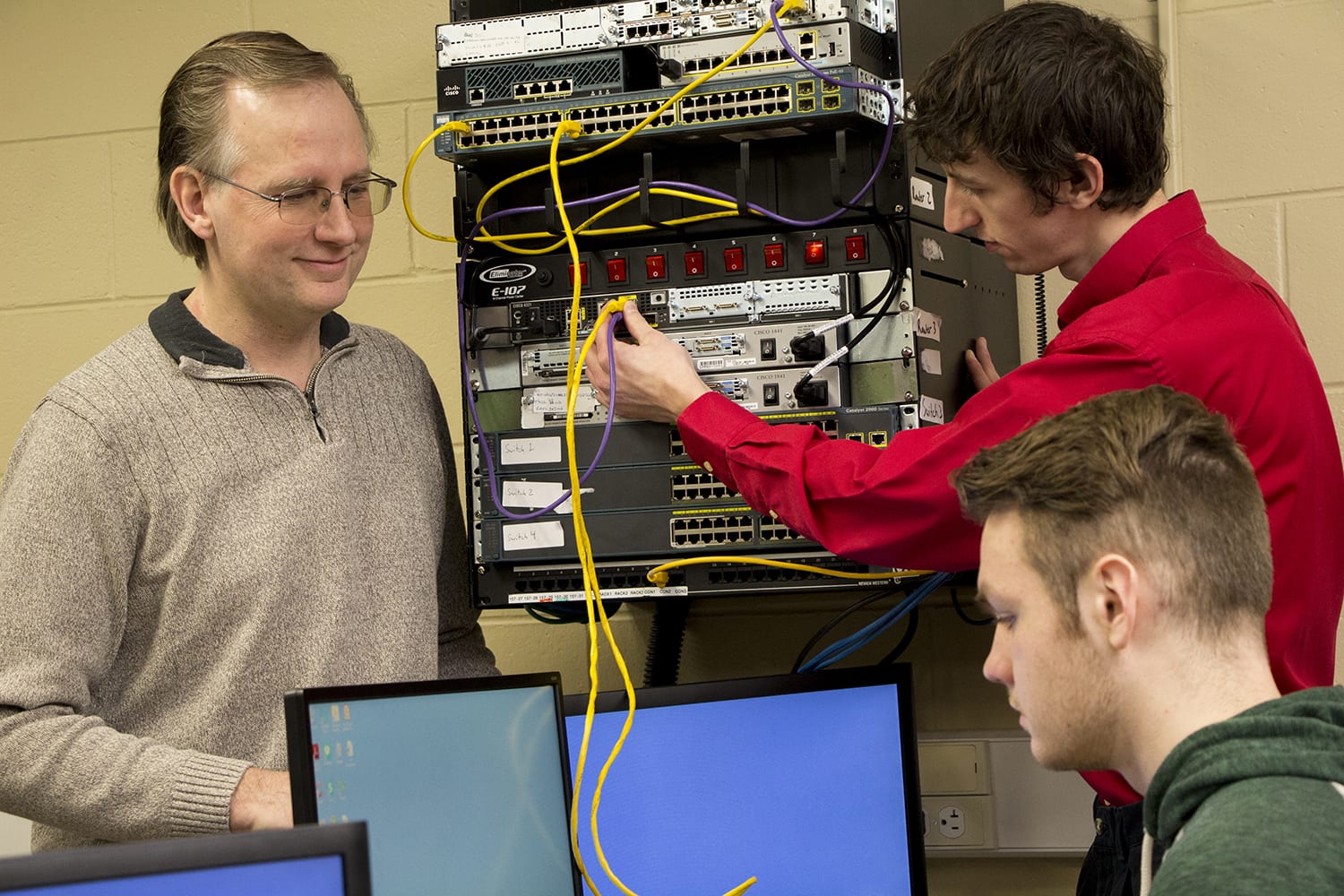CCN Focus: Greg Brodt, Wisconsin Indianhead Technical College
As a part of the National Convergence Technology Center (CTC) featured blogs, we would like to introduce to you some of our professors and instructors in the Convergence College Network (CCN) community. The CCN is a select cohort of community colleges and universities from across the country that connects IT educators with a wealth of resources to enhance their programs. In this week’s Q&A blog, we’re featuring Greg Brodt an IT Instructor at Wisconsin Indianhead Technical College in Rice Lake, WI.

Greg Brodt assisting students during an IT class.
What do you teach? I teach IT courses, which include: CCNA 1-4, VOIP, Information Security, Ethical Hacking, Wireless LANs, Router and Firewall Security and others! I am also a CISCO ITE, Network Programmability and CyberOps instructor trainer.
How long have you been a teacher? I’ve been teaching for over 27 years.
What did you do prior to teaching? My parents were high school teachers, and I swore I’d never teach, but I had a department chairman, when I was finishing my bachelor’s degree at University of Wisconsin-Stout, ask me to teach a class at the university. He really had to twist my arm, but I had a lot of interest in Circuit Analysis, a course about DC and AC circuits. That was it! Loved it! I went on to teach a number of other courses there.
What sparked your interest in teaching? Seeing students engage in learning, sparks me as an instructor to this day!
What is the secret to successfully teaching IT to students?
- Working though the challenges and problems to make stuff work such as get equipment set up, configure and verify it’s working.
- Asking question to make them think along with lots of encouragement!
What’s the biggest challenge teaching IT? Difficult materials, a lot of the topics the average student has not thought about such as the complexities with IP address or understanding the functions and timing involved with a processor. This can make it difficult to understand. I try to make the connection with them with different ways to think about it along with trying to relate processes to things they do. For example, phone numbers can be used to relate to IP addressing.
How has the CCN helped you? Greatly, the process of continual learning and dedicating time to learn new topics is so important to stay current in the IT field.
What is the best thing about being a part of CCN? The learning environment during the Working Connections is so positive! You interact with others working in a similar field and become very energized. Each of the tracks I have taken have helped students (and myself) in the classroom. All of the IT topics tie together in some way. For example: from the use of a MAC in a VM, to understanding cloning issues of machines, to the way the switch functions with the MAC address and what impact there could be with security.
What advice would you give a new community college joining CCN? There are a ton of resources to help you get involved.
Is there anything you would like to suggest improving the CCN program?
Well, you can’t learn it all! Maybe some more on-line, but short-term learning sessions. Similar to what CISCO is doing with the Instructor Professional Development (IPD) weeks.
How do you see the IT landscape changing in the next 5 years? Get out the magic ball! I think we have to always keep an eye on shifts within the industry from AI, IOT to security and everything in between. It’s important that we continue to set a strong foundation so our students can build on their skills as new areas develop. There are so many topics that are falling under the IT umbrella and I only see them growing. We are in a revolution of change in IT, non-stop change.
Is there anything else we should know but didn’t ask about?
At WITC we are moving to a cyber-security program and I’ve been watching this trend for years. The need for instructor training in this area is going to need to be addressed – Pen testing, forensics, logs, firewalls, VPN, IPS, malware, threat detection and legal aspects.
